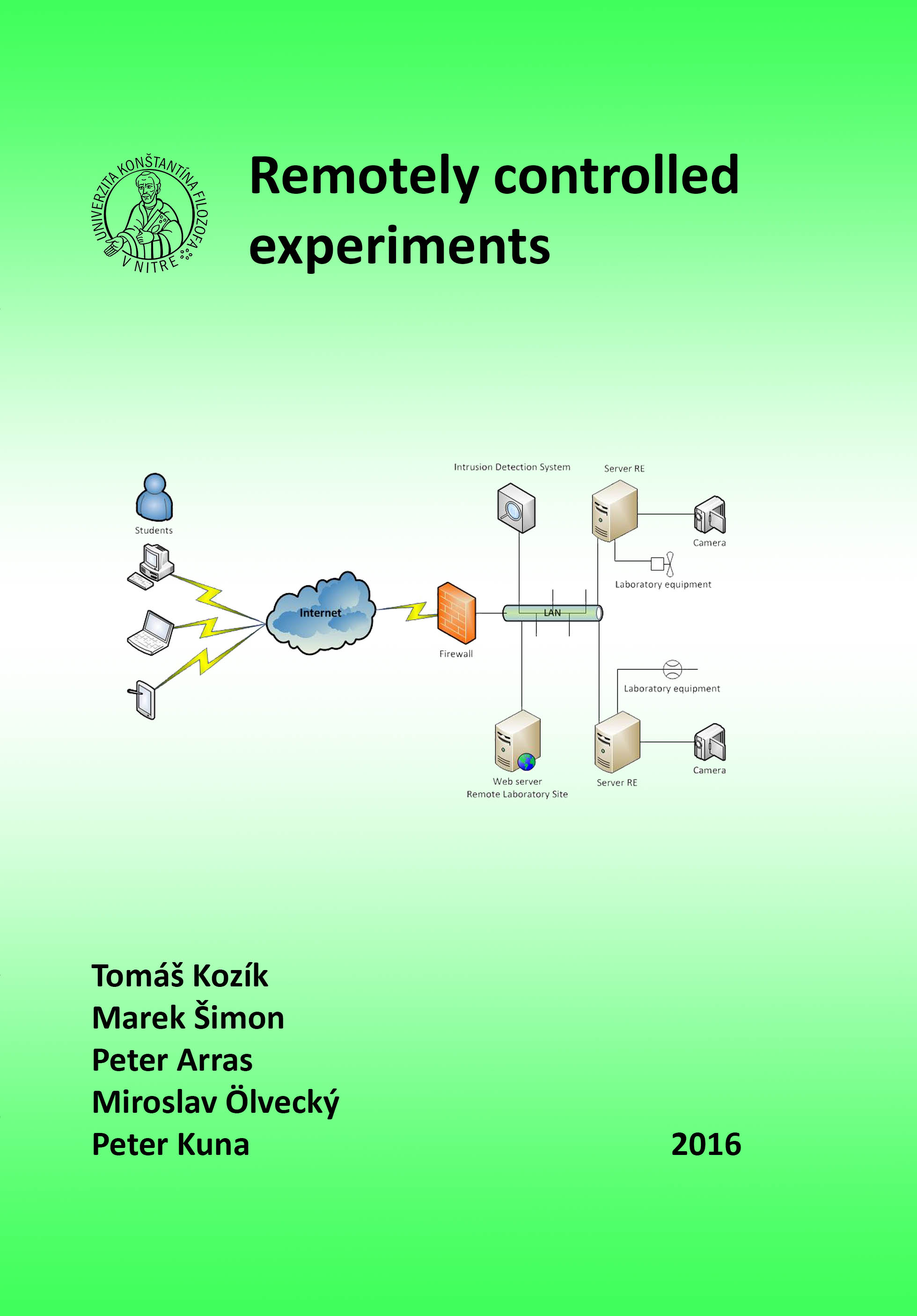Remotely controlled experiments
Tomáš Kozík, Marek Šimon, Peter Arras, Miroslav Ölvecký, Peter Kuna
NITRA 2016
Reviewers:
dr hab. Henryk Noga, prof. UP.
doc. RNDr. Peter Čerňanský, PhD.
doc. Ing. Roman Hrmo, PhD., ING-PAED IGIP
First English edition
© Tomáš Kozík, Marek Šimon, Peter Arras, Miroslav Ölvecký, Peter Kuna, 2016
© Univerzita Konštantína filozofa v Nitre, 2016
ISBN:978-80-558-1029-4
DOI: 10.17846/RCE2016.177
ABSTRACT
In a monograph called Remotely Controlled experiments the authors are focused on the issue of the use of information and communication technologies in natural science and technology subjects by applying social experiment in teaching. The focus is on the application of simulation experiments and experiments installed at remote laboratories. In addition to the description of the basic characteristics of school, simulated and remote experiments with indication of didactic requirements, the authors define the necessary conditions for the planning, construction and exploitation of remote experiments in applications with a view to achieving their long-term operation capability, anticipated innovation in line with achieved progress in science and technology.
One of the parts is an analysis of the results of the survey of attitudes among university teachers to apply remote experiments in university education. Special attention is dedicated to the management and control of remote experiments using PLC (Programmable Logic Controlle) systems, from the view of their design and technical solution to ensure the security in operation of remote experiments.
Moreover, educational and technical issues related to the use of remote experiments in teaching of technical materials and technologies for their production are discussed. This area was long time on the sidelines of interest and so far it has not been given sufficient attention from the part of the pedagogical as well as technical research and development.

